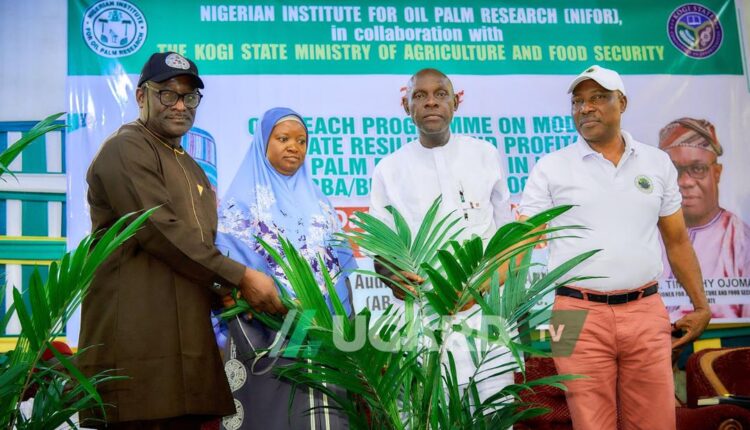Kogi Turns Climate Crisis into Opportunity with ₦2.5M Oil Palm Revolution
State Launches Training to Equip Farmers, Engage Youth, and Drive Export Growth
Faced with unpredictable weather and shrinking farm yields, Kogi State is rewriting the story of rural agriculture—turning crisis into opportunity with a bold, climate-smart oil palm initiative that promises prosperity, jobs, and sustainable growth.
At the College of Agriculture, ABU Kabba, the state government flagged off a pioneering training program aimed at equipping farmers with modern oil palm production techniques to withstand climate shocks and tap into booming global markets. To back this vision with action, the government distributed improved oil palm seedlings worth ₦2.5 million to farmers in Kogi West, with plans to extend the gesture to Kogi East.
Speaking at the event, the Commissioner for Agriculture and Food Security, Hon. Timothy Ojoma—represented by Director of Agricultural Services, Mr. Kunle Agbana—declared that the era of guesswork in farming is over. “We are preparing our farmers to produce with precision, resilience, and a global mindset,” he said, highlighting Governor Usman Ahmed Ododo’s massive investment in the sector, including tractorizing 8,000 hectares and supporting 88,000 farmers with inputs in the past year.

Dr. Olusegun Solomon of the Nigerian Institute for Oil Palm Research (NIFOR) captured the vision: “Oil palm is a goldmine. Even the waste has value. It’s time to move from smallholder survival to strategic enterprise.”
Chairman of the Kogi West Oil Palm Multi-Purpose Cooperative Society, Mr. Moses Olorunnipa, echoed this enthusiasm. “This is a wake-up call for our youth. Oil palm is not just farming—it’s an industry. If we build the value chain together, Kogi will rise.”
The workshop brought together stakeholders, experts, and farmers determined to respond to the climate challenge with innovation and collaboration. With traceability systems, sustainable practices, and high-quality inputs, Kogi State is charting a new path: one where agriculture becomes both climate-smart and economically powerful

